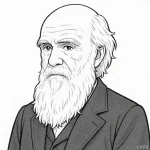“False face must hide what the false heart doth know.”

- April 26, 1564 – April 23, 1616
- Born in England
- Playwright, poet, actor
table of contents
Quote
“False face must hide what the false heart doth know.”
Explanation
This quote from Shakespeare’s Macbeth speaks to the concept of deceit and the lengths to which individuals will go to hide their true intentions. “False face” refers to a mask or facade that one wears to deceive others, hiding the truth behind a deceitful appearance. The “false heart” suggests an inner corruption or guilt that contradicts the outward appearance, emphasizing the theme of internal conflict. Historically, this line was spoken by Macbeth as he contemplates the treacherous act of murder he is about to commit. It reflects the tension between outward actions and inner moral turmoil.
In modern times, this quote still holds relevance in situations where people conceal their true feelings, intentions, or guilt. It speaks to the human tendency to mask one’s true self in order to protect or manipulate others, whether in personal relationships, politics, or corporate settings. The pressure to appear virtuous while harboring immoral thoughts is a common struggle in many social contexts. For example, politicians or public figures often maintain a carefully crafted image that hides their true motivations or actions from the public eye.
This quote also touches on the psychological toll of living a double life—having to constantly maintain a false front can be emotionally exhausting. It serves as a reminder that the truth will eventually come to light, and the internal conflict caused by deceit can lead to greater consequences. In this way, the quote warns that dishonesty may not only harm others but also cause personal anguish.
Would you like to share your impressions or related stories about this quote in the comments section?



